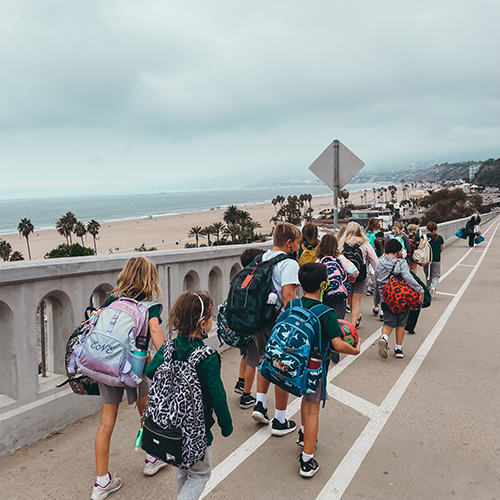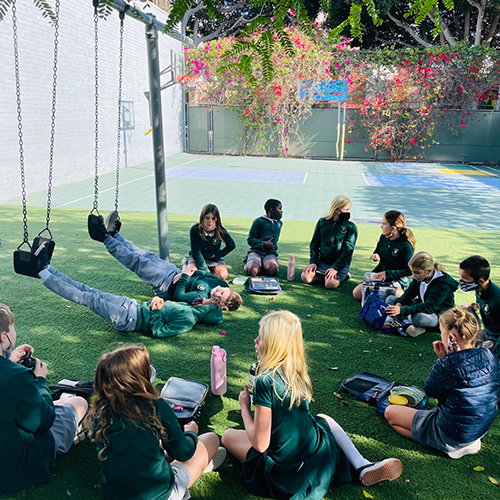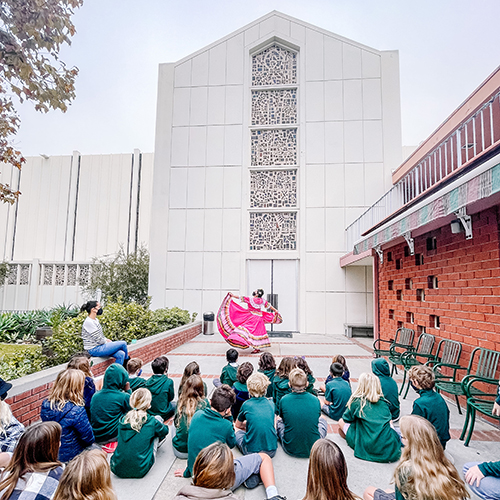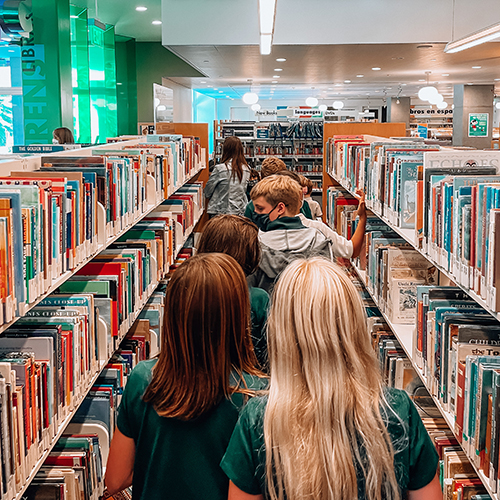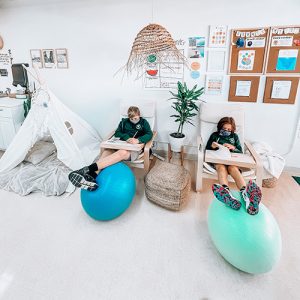School Model
Curriculum
Phonics in Reading Instruction
Reading and Writing Workshop
Pioneered by a leader in literacy instruction, Lucy Calkins, the Reading and Writing Workshop model is designed to engage learners by allowing them to choose literature and writing topics based on their individual interests. This pedagogy fosters a love of learning by utilizing each child’s zone of proximal development to provide the appropriate amount of challenge without frustration.
Each lesson consists of
- Mini lesson with skill and strategy
- Individual application of strategy
- Mid-workshop lesson
- Share
“The results of critically engaged reading workshop, writing workshop, and phonics workshop, and phonics work are visible in TCRWP classrooms and schools around the globe. One way that we can trace the effects of students coming of age inside of Units of Study is through the work that they do- the essays they write, the nonfiction books they create, the TedTalks they present, the book club conversations they author.” – The Reading & Writing Project
Visit The Reading & Writing Project to learn more.
Cognitively Guided Instruction
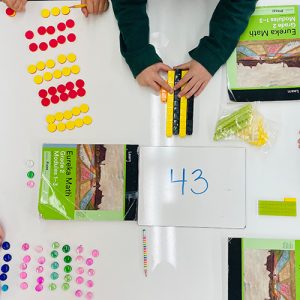 Cognitively Guided Instruction (CGI) is a math pedagogy based on the work of Megan Franke, UCLA Center X, that allows for differentiated instruction. This student-centered approach maximizes engagement through an emphasis on exploring how to use your intuition and natural number sense to solve problems.
Cognitively Guided Instruction (CGI) is a math pedagogy based on the work of Megan Franke, UCLA Center X, that allows for differentiated instruction. This student-centered approach maximizes engagement through an emphasis on exploring how to use your intuition and natural number sense to solve problems.
Visit the UCLA Mathematics Project to learn more.
Eureka Math (EngageNY)
“Eureka Math® set a new standard for rigor, coherence, and focus in the classroom so students gain a deeper understanding of the why behind the numbers, all while making math more enjoyable to learn and teach”- Greatminds.org
Visit Great Minds to learn more.
Elementary (K-4) : Mystery Science
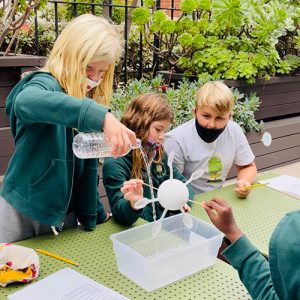 “For these critical ten years of their lives, any time a child wonders something all they can do is ask grownups: parents or other adult family members at home, and teachers at school. Most questions that children ask, grownups simply don’t know how to answer. How does a magnet stick to a fridge? Can animals get sunburn? Why do some people have different accents?” – Mystery Science
“For these critical ten years of their lives, any time a child wonders something all they can do is ask grownups: parents or other adult family members at home, and teachers at school. Most questions that children ask, grownups simply don’t know how to answer. How does a magnet stick to a fridge? Can animals get sunburn? Why do some people have different accents?” – Mystery Science
Visit Mystery Science to learn more.
Middle School (5-7): STEMscopes
“Our digital curriculum is brought to life through exploratory hands-on kits that promote inquiry and excitement as your students engage in real-world scientific connections.” – STEMscopes
Visit STEMscopes to learn more.
Standards-Based Curriculum (K-1)
Teacher Curriculum Institute (Grades 2-7)
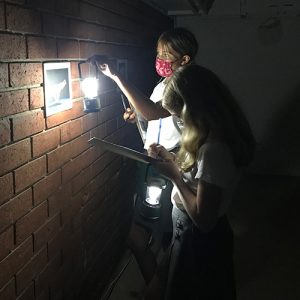 “Students can’t help but love TCI’s hands-on lessons. Inquiry projects, debates, and experiential exercises are just some ways that students investigate and master key concepts.” – Teacher Curriculum Institute
“Students can’t help but love TCI’s hands-on lessons. Inquiry projects, debates, and experiential exercises are just some ways that students investigate and master key concepts.” – Teacher Curriculum Institute
Visit the Teacher Curriculum Institute to learn more.
Social Emotional
Mindfulness
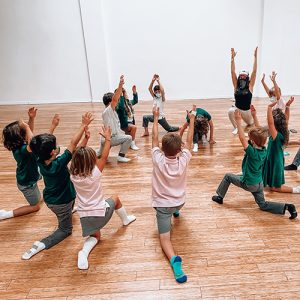 Practicing mindfulness in the classroom develops a student’s ability to focus on the present moment and engage in learning.
Practicing mindfulness in the classroom develops a student’s ability to focus on the present moment and engage in learning.
Research shows the benefit of giving students the space and tools to re-center and refocus results in a decrease of stress and anxiety. The cornerstones of mindfulness educate students on how to cope with daily fluctuations in life and build resilience by embracing and learning from challenges.
Learn more in the Introduction of Daniel Rechtschaffen’s The Way of Mindful Education: Cultivating Well-Being in Teachers and Students.
Growth Mindset
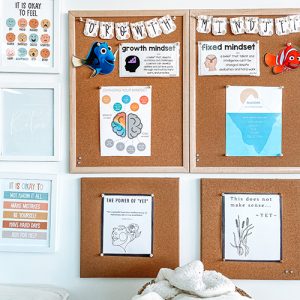 A growth mindset is an essential skill for success. Having a growth mindset is defined by the understanding that one’s ability fluctuates as a result of effort, perseverance, and practice. Carol Dweck’s research on the Growth Mindset approach to learning explains that how you view yourself determines your outcome. Sycamore Community School integrates growth mindset practices and activities into each learning domain to heighten our student’s awareness around their potential and build a higher self-worth.
A growth mindset is an essential skill for success. Having a growth mindset is defined by the understanding that one’s ability fluctuates as a result of effort, perseverance, and practice. Carol Dweck’s research on the Growth Mindset approach to learning explains that how you view yourself determines your outcome. Sycamore Community School integrates growth mindset practices and activities into each learning domain to heighten our student’s awareness around their potential and build a higher self-worth.
“These neuroscientific discoveries have shown us that we can increase our neural growth by the actions we take, such as using good strategies, asking questions, practicing, and following good nutrition and sleep habits.” – Mindset Works
Visit Mindset Works to learn more.
Responsive Classroom is a framework of social and emotional practices designed to build a strong and cohesive classroom community. The practices are based on partnerships, which allow students to get to know and trust each other as people, learners, teachers, and coaches.
In a responsive classroom, students feel valued because of the rapport they build with their peers and teachers through morning meetings, closing circles, and consistent feedback. In partnership with students, the teacher establishes a classroom culture where students are intrinsically motivated.
Four Key Domains of Responsive Classroom
• Engaging Academics
• Positive Community
• Effective Management
• Developmentally Responsive Classroom
“We believe students learn best and thrive in school and classroom environments that are responsible to their academics, social, and emotional strengths and needs.” – Center for Responsive Schools
Visit the Center for Responsive Schools to learn more.

